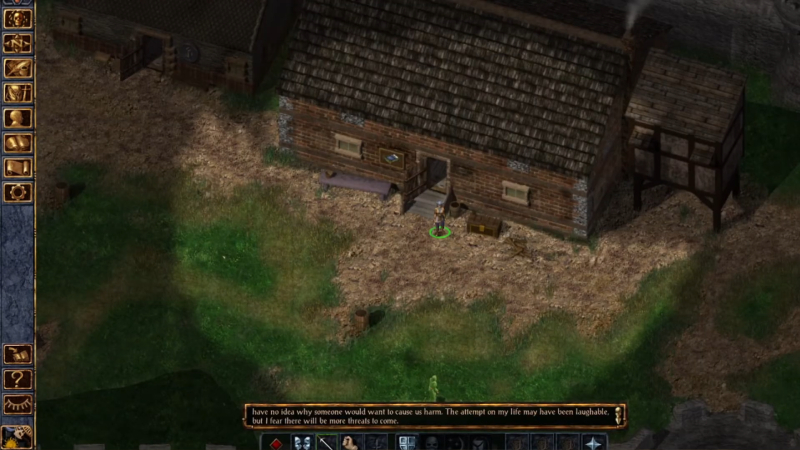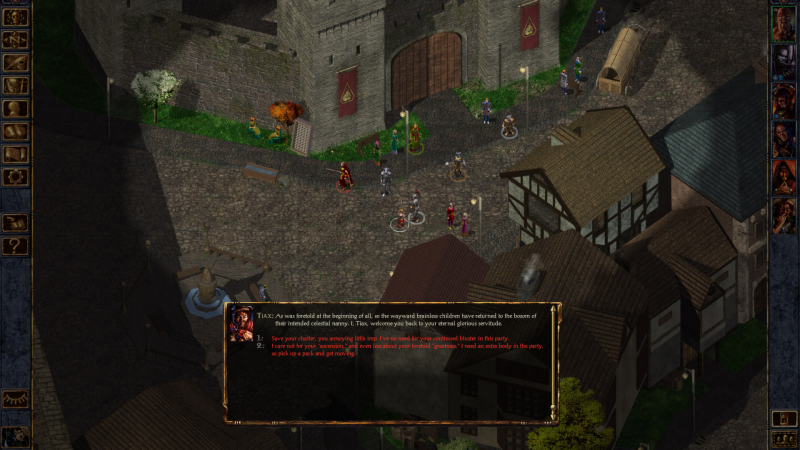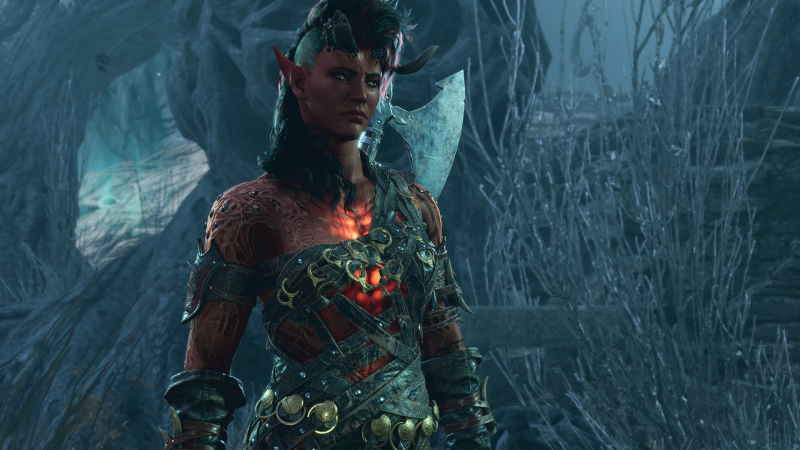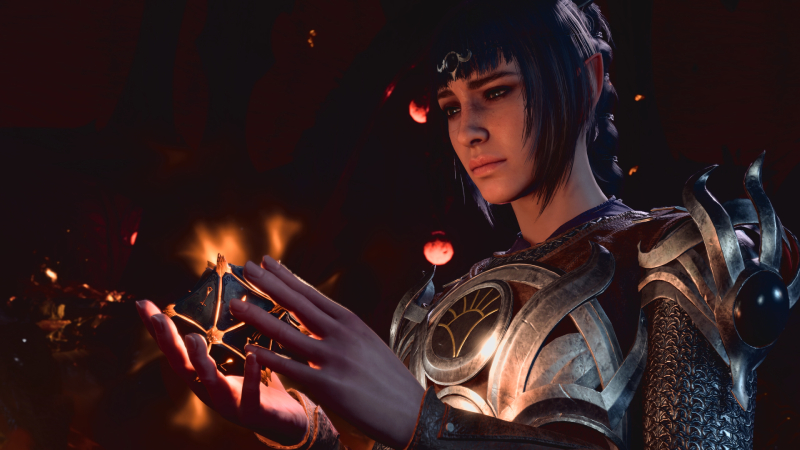Baldur’s Gate 3 has finally been released on PlayStation 5, Xbox Series X/S, and PC after a long-awaited anticipation. The game has received numerous Game of the Year awards from various outlets, solidifying its status as a phenomenal game. However, the extensive history of the franchise can be confusing for newcomers. To help clarify the chronology of the series, we have compiled a comprehensive guide listing all the Baldur’s Gate games in the order of their release.
The Baldur’s Gate series originated in 1998 and has since evolved into two distinct branches, with several spin-off titles expanding the franchise. To make sense of the series, follow our guide which outlines the release order of all the Baldur’s Gate games.
Credit: Larian Studios
What Order Are The Baldur’s Gate Games In?
The journey began in 1998 with the original Baldur’s Gate developed by the legendary BioWare. Over the years, the series has seen multiple releases and expansions, leading up to the latest installment, Baldur’s Gate 3. To provide a better understanding of the franchise, let’s explore the chronological order of the Baldur’s Gate games:
- Baldur’s Gate (1998)
- Baldur’s Gate: Tales of the Sword Coast (Expansion, 1999)
- Baldur’s Gate II: Shadows of Amn (2000)
- Baldur’s Gate II: Throne of Bhaal (Expansion, 2001)
- Baldur’s Gate: Dark Alliance (Spin-off, 2001)
- Baldur’s Gate: Dark Alliance II (Spin-off, 2004)
- Baldur’s Gate: Enhanced Edition (Re-release, 2012)
- Baldur’s Gate II: Enhanced Edition (Re-release, 2013)
- Baldur’s Gate: Siege of Dragonspear (Expansion, 2016)
- Dungeons & Dragons: Dark Alliance (2021)
- Baldur’s Gate 3 (2023)
The Baldur’s Gate series split into the Bhaalspawn Saga and the Dark Alliance sequence. The main chronology includes Baldur’s Gate, Baldur’s Gate II, and Baldur’s Gate 3 along with their respective expansions. The Dark Alliance games form a separate series from the main lineup.
With a clear understanding of the Baldur’s Gate games’ order, here’s a brief overview of each game:
Baldur’s Gate (1998)

Credit: Interplay
The inaugural Baldur’s Gate in 1999 introduced the world of Dungeons & Dragons to PC gamers for the first time. Developed by BioWare, this classic game has stood the test of time.
Baldur’s Gate: Tales of the Sword Coast (1999)
Baldur’s Gate: Tales of the Sword Coast, an expansion released in 1999, added 20-30 hours of extra content to the original game, enhancing the overall experience of the Baldur’s Gate series.
Baldur’s Gate II: Shadows of Amn (2000)

Credit: Interplay
Baldur’s Gate II: Shadows of Amn, released in 2000, built upon the success of its predecessor by innovating the gameplay mechanics. Considered a masterpiece, this sequel is one of the best games in the series.
Baldur’s Gate II: Throne of Bhaal (2001)
Baldur’s Gate II: Throne of Bhaal, released in 2001, offered a continuation of the narrative without significant gameplay changes. Fans of the series found enjoyment in this expansion.
Baldur’s Gate: Dark Alliance (2001)

Credit: Interplay
Baldur’s Gate: Dark Alliance introduced real-time hack-and-slash combat, deviating from the original series’ gameplay. Despite the change, the game garnered mixed reception compared to the classic Baldur’s Gate titles.
Baldur’s Gate: Dark Alliance II (2004)

Credit: Interplay
Baldur’s Gate: Dark Alliance II, released in 2004, offered little innovation and failed to leave a lasting impact among players. It is considered forgettable compared to the other Baldur’s Gate games.
Baldur’s Gate: Enhanced Edition (2012)

Credit: Beamdog
Baldur’s Gate: Enhanced Edition, a remaster of the original game released in 2012, revitalized the gameplay for modern audiences. It serves as an excellent entry point for those looking to experience the classic Baldur’s Gate games.
Baldur’s Gate II: Enhanced Edition (2013)

Credit: Beamdog
Baldur’s Gate II: Enhanced Edition, released in 2013, provided a modernized version of the beloved sequel. It offers an enhanced experience for players looking to revisit one of the best Baldur’s Gate games.
Baldur’s Gate: Siege of Dragonspear (2016)

Credit: Beamdog
Baldur’s Gate: Siege of Dragonspear, an expansion released in 2016, offered fresh content for fans of the series after a decade-long hiatus. The expansion maintained the essence of the classic Baldur’s Gate games.
Dungeons & Dragons: Dark Alliance (2021)

Credit: Wizards of the Coast
Dungeons & Dragons: Dark Alliance, released in 2021, failed to make a significant impact compared to other Baldur’s Gate games. The game struggled to deliver a compelling experience for players.
Baldur’s Gate 3 (2023)

Credit: Larian Studios
Baldur’s Gate 3, released in 2023, represents the pinnacle of the series after nearly three decades. Larian Studios crafted an exceptional gaming experience set in the world of Faerûn, making it a must-play for any gamer interested in the Baldur’s Gate franchise.
Related: How Long to Beat Baldur's Gate 3?
Which Baldur’s Gate Should You Start With?

Credit: Larian Studios
Considering the accessibility of Baldur’s Gate 3, starting with the latest installment is a viable option. While newcomers may encounter some Dungeons & Dragons-related mechanics, the game is designed to ease players into the experience. Feel free to dive into the latest entry to enjoy the series’ current peak.
If you prefer to play the games in chronological order, beginning with the Enhanced Editions of Baldur’s Gate and Baldur’s Gate II is recommended. These remastered versions offer an enhanced gaming experience compared to the original releases, making them ideal starting points for newcomers. However, if you appreciate retro gaming, exploring the classic titles is always a valid choice.
Read More: Check Out The Best BG3 Classes


